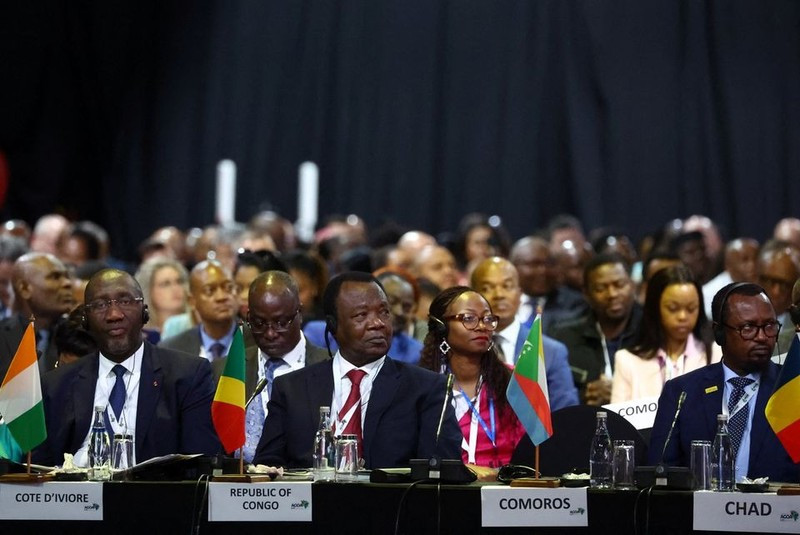Officially effective since 2000, AGOA is a cornerstone of US economic and trade policy in Africa, allowing tax exemption for goods exported from sub-Saharan countries to the world’s leading economy.
South African President Cyril Ramaphosa emphasised, that AGOA has played a key role in economic cooperation between the US and Africa, as well as promoting growth and development across the continent, over the past 20 years.
US Trade Representative Katherine Tai said AGOA has opened new doors for trade and investment in Africa and encouraged regional leaders to pursue economic and political reforms, to bring a better life to the people.
In 2022, more than 10 billion USD of goods from Africa exported to the US were exempted from tax under AGOA, a significant increase compared to the figure of 6.8 billion USD in 2021. The Act has also made an important contribution to creating jobs, developing industries, as well as promoting integration in Africa. According to the President of South Africa, the textile and garment sector is a typical example of the benefits of AGOA, as garment exports from Lesotho, Ethiopia, Mauritius, Madagascar and Kenya have not only generated tens of thousands of jobs for Africa but have also made these countries become reliable manufacturers for American consumers.
As an important link between the US and African relationships, the future of AGOA is still an open question. After being extended twice, most recently in 2015, the Act will expire in September 2025. African countries all expressed their wish for Washington to extend AGOA.
At the AGOA Forum, South African President Cyril Ramaphosa called on the US Congress to extend AGOA for a far longer period, to maintain confidence for businesses intending to expand investment activities in Africa.
African Union (AU) Commissioner for Trade and Industry Albert Manyanga emphasised, that the continent wants AGOA to be extended for another 10 to 20 years.
While Africa expects AGOA to be extended without any amendments, US officials believe that this law needs to be updated because it is outdated, after more than 20 years of implementation. The US International Trade Commission pointed out some shortcomings in the implementation of AGOA. Accordingly, more than 80% of African non-oil goods, which have been exported to the US market tax-free, have come from five countries South Africa, Kenya, Lesotho, Madagascar and Ethiopia. In addition, while Africa’s garment sector has made great progress, thanks to the positive impact of AGOA, many other sectors have stagnated, even regressed. Newer industries such as technology and digital services also have not been updated in the act.
In that context, US Secretary of State Antony Blinken affirmed that President Joe Biden’s administration not only wants to extend AGOA but also wishes to coordinate with the US Congress to optimise the law. President Joe Biden also said he would remove the Central African Republic, Gabon, Niger and Uganda from AGOA in January 2024, due to coups, political instability and democracy issues. Meanwhile, Mauritania will be reinstated into AGOA, after being removed from the programme in 2019, due to concerns about workers’ rights in the country.
Analysts say that the future of AGOA after 2025 has not yet been decided due to many conflicting opinions. The issue will be considered carefully by Washington because the US is trying to strengthen its position in Africa. However, many African officials and US investors are concerned that if Washington amends AGOA, the ratification process in both chambers could be prolonged or even stalled, negatively impacting the African economy and activities of American businesses.
President Joe Biden has repeatedly affirmed Africa’s important position in US foreign policy. Renewing AGOA not only helps Washington strengthen its voice in the region, bringing practical benefits to the African economy but also promotes the important link between the two sides.
















